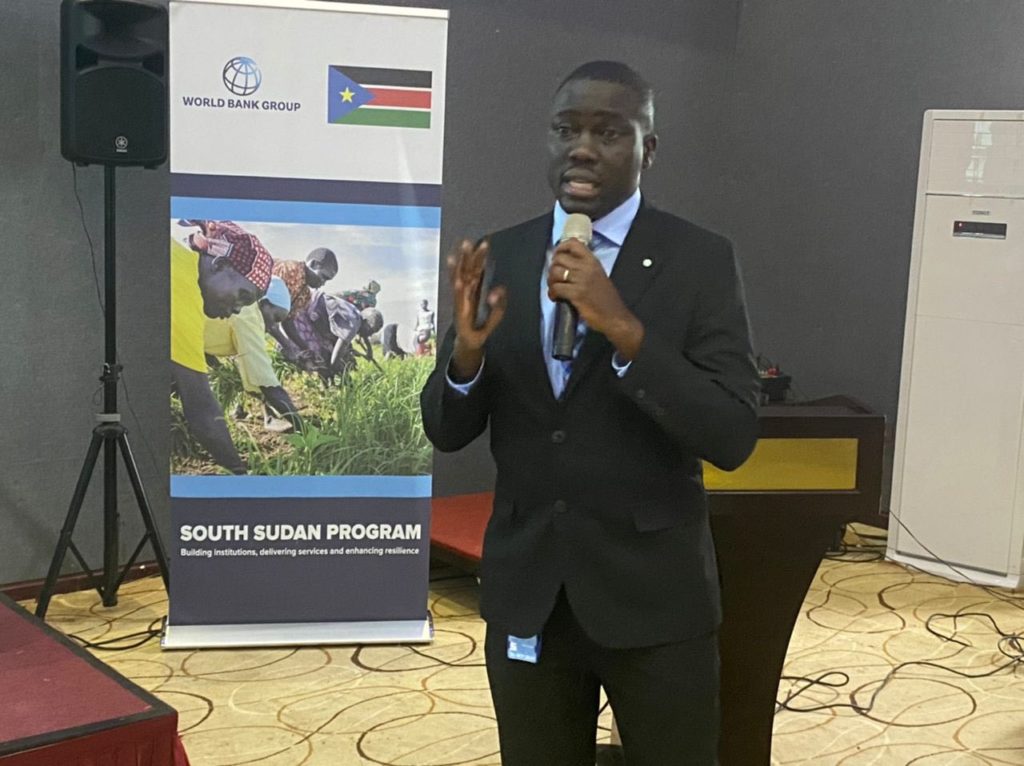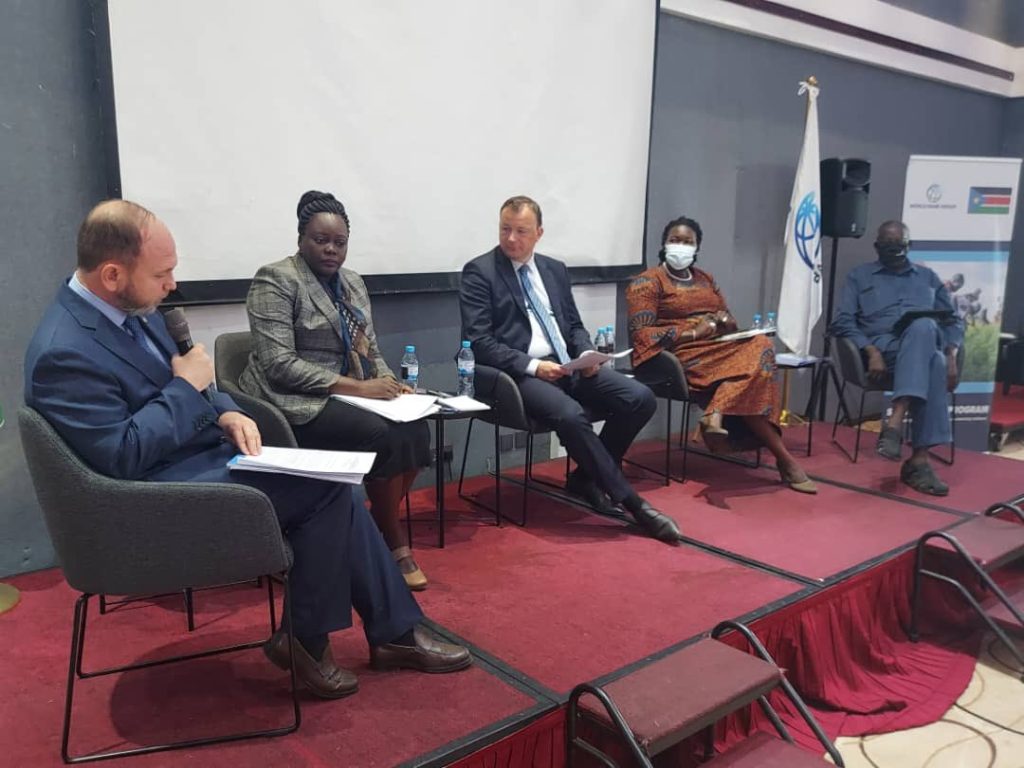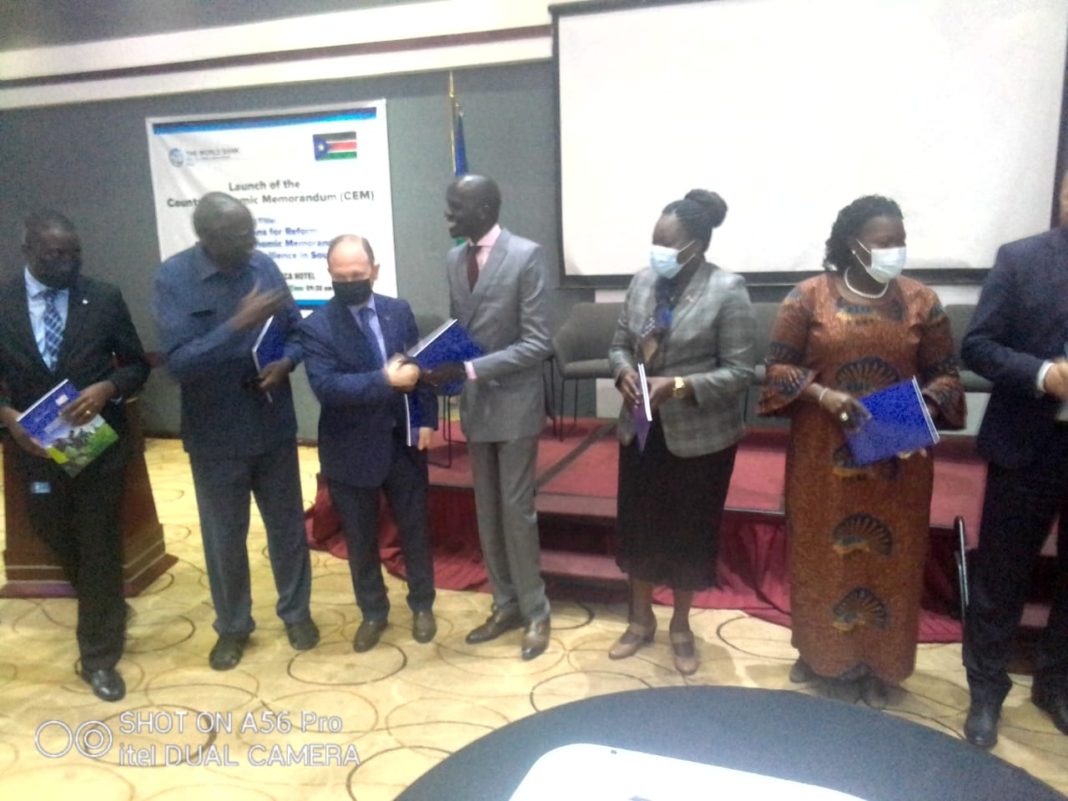In an online comedy, a young man confidently drives to a petrol station in the South Sudanese capital, Juba, and takes a spot in a fuel refilling queue. Greeted by an increased cost of petrol per liter (about $1.4) on the price board, he walks to the station canteen, loudly murmuring, “What is the meaning of this? Where is Junub heading? Oh! How I wish I never bought a car.” At the canteen, he orders breakfast: 600ml bottled water, 500ml coke, and baked bread, totaling $1.4. “To hell with the car; I will keep using my 700SSP ($1.4) for food instead of for fuel,” he tells the canteen operator.
As the South Sudanese Petroleum Minister tells the story at the World Bank’s South Sudan Country Economic Memorandum (CEM), ‘Directions for Reform,’ panel discussion, the audience murmurs, then whispers, rising to a crescendo of laughter. “This is the exact reality of our new normal in this country, partly due to external factors and our own making”, the Minister for Petroleum and Mining Hon. Puot Kang Choi, says.

The Country Economic Memorandum, an assessment of the country’s drivers of growth and productivity, now hopes to change this reality. In this context, this report highlights what South Sudan can do to sustain future growth and shows why the country has not achieved high levels of diversified growth alongside peace, stability, and a better standard of living for its people. According to the minister, the biggest internal problem is the hoarding of petroleum products in the country by individuals and pump owners, an assertion that disregards the fact that hoarding is often a reaction to supply problems, which in this case arise out of scarcity of hard currency and of a deteriorating major fuel import road. “Many people have come to me with recommendations to revoke the operation licenses of pump stations involved in such, but I always tell them that I can’t do that, for there is no legal ground in our laws to do that,” said Puot.
In trying to achieve this, the minister has reached out to the US and Norwegian governments. “In my previous discussions with the Charge de Affaires of the Norwegian and American Embassies, I have told them that we don’t need money, but their human expertise because they had earlier helped us in formulating the Act.”
PUBLISHING DAILY OIL SALES
With regards to transparency, the minister said that they are very serious in implementing the Public Finance Management Reforms recommended by the IMF and the World Bank. “One of the things we are about to finish right now is the development of our website. Once it’s up and running, we will have daily updates of production quantities published on it and we expect the ministry of Finance to do the same with regards to daily revenue and allocation of the revenues from the sector on their website”, Puot stresses.
EXISTING LAW
There is not much that’s new in the reforms proposed by the World Bank. The country’s law already references transparency. Chapter 2 states that Petroleum and gas development and management shall be guided by: safeguarding national interests, creating lasting benefits for society, promoting efficient and sustainable resource management, using oil revenues to develop other sectors of the economy, especially agriculture, and ensuring transparency and accountability. It calls for fair competition to increase productivity and efficiency in the petroleum and gas sector, promotion of balanced and equitable development, creation of a secure and healthy investment environment, and protection of the environment and biodiversity. It calls for building the capacity of South Sudanese within the petroleum and gas sectors and establishing oil infrastructure, such as pipelines, refineries, storage, processing, and transport facilities. Plans for a refinery announced a decade ago seem to have stalled. The ministry blames sanctions on the country for some of its challenges.

“Most companies are not willing to invest in our oil sector because of sanctions; thus, the over reliance on the existing companies because we are left with no choice as a government”, says Puot.
Transparency, too, may have something to do with it.
South Sudan is the only country in the region that is yet to apply for validation to join the Extractive Industries Transparency Initiative, a global initiative to disclose information along the extractive industry value chain – from how extraction rights are awarded, to how revenues make their way through government and how they benefit the public.
Countries, such as the Democratic Republic of the Congo, Central African Republic and Uganda have all applied though not yet validated.
“With regulations in place and the Public Finance Management reforms that we are undertaking, we should be able to apply to join the initiative,” Puot says.
BUT FIRST, PEACE
In the end, all aspirations will require peace. The country has been buffeted by war following the sacking of cabinet ministers in 2013. “Getting South Sudan to realize its potential will require steps aimed at consolidating peace and strengthening institutions, as well as targeted reforms tailored at harnessing South Sudan’s rich natural capital for development impact as first-order prerequisites for inclusive economic recovery,” says World Bank’s Country Manager Firas Raad. “South Sudan’s economy is projected to shrink between 0.8% t0 2.8 %, but with the right decisions and peaceful environment, that is likely to change,” adds Joseph Mawejje, the World Bank Economist for South Sudan.
“You, young men of these days, are very confrontational in your style of politics. If you are sacked today, don’t pick up arms and run to the bush. Just come and join me at Ebony Centre,”
Dr. Lual Deng, the Executive Director for Ebony Centre for Strategic Studies, a former World Bank economist and Petroleum minister ends with a joke of his own.
And the joke, this time, is on the petroleum minister.




